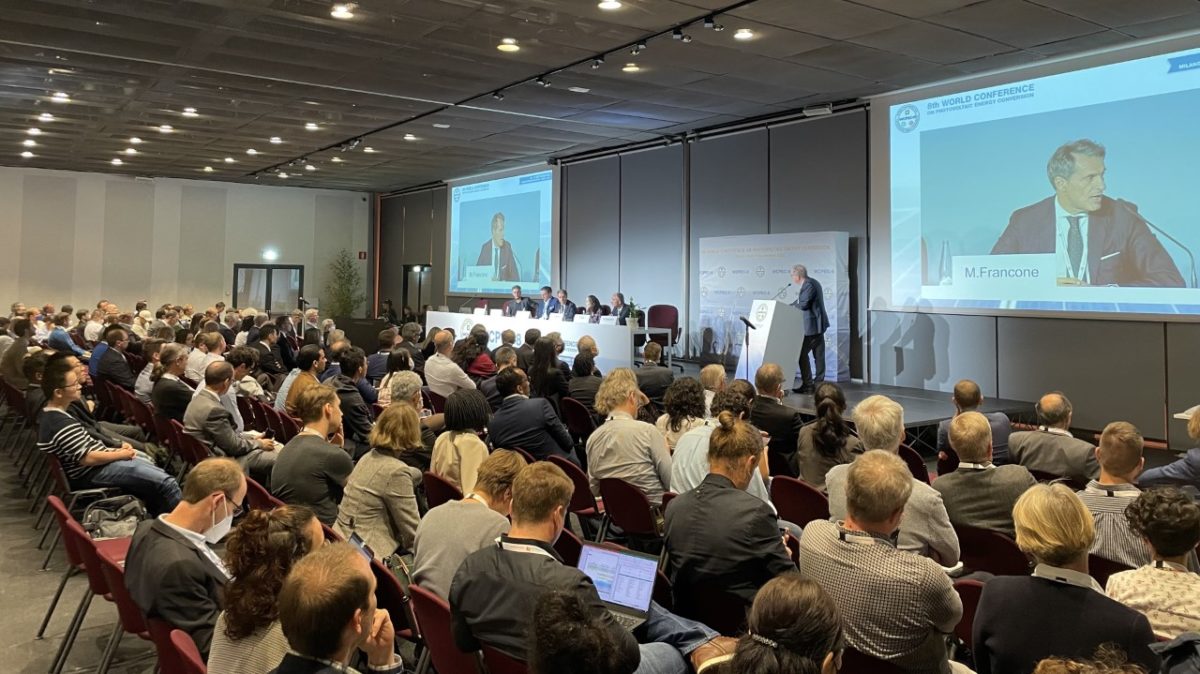The first terawatt of solar PV installed globally took some 70 years to achieve, while the second will likely take only three. This was the observation made by Pierre Verlinden, the former chief scientist at Trina Solar and now the managing director of consultancy Amrock. Verlinden, when chairing a panel discussion on how the next terawatt of installed PV capacity can be accelerated.
The session rounded out the morning proceedings at the WCPEC-8, which saw the industry-shaping research of the UNSW’s Martin Green recognized through his receipt of the WCPEC Prize which, like the event, occurs only every four years. Marko Topič, from the Ljubljana Faculty of Electrical Engineering and Colorado State University was awarded the Becquerel Prize for his work in PV device and system measurement and simulation at the event
The mood on the first morning of the WCPEC-8 was high, with researchers clearly pleased to be meeting once again in person, after three years of disruption due to the Covid-19 pandemic. However, some disruptions did occur, with Marko Topič unable to attend in person having contracted the illness last week.
Rallying cry
The opening proceedings of WCPEC-8 were further energized by “truly the first global energy crisis” – in the words of the International Energy Agency’s (IEA) Paolo Frankl, who spoke via video link. He argued that there is a pressing need for the “diversification” of PV manufacturing “to reduce supply chain vulnerabilities,” if solar is to rapidly scale.
Peter Fath, from manufacturing consultancy RCT Solutions delivered an invigorating presentation in which he suggested that vertical integration of PV production can not only deliver more stable industry growth but also a leveling of the playing field in terms of production cost – with his company’s analysis concluding the when subsidies, capital costs, and profit are removed from the analysis, European, US, Indian, and Chinese solar manufacturing would have similar cost structures.
“Don’t be afraid of the manufacturing cost … we are very, very close [between countries],” said Fath, who is the chairman of the PV division of the German Engineering Federation (VDMA) and the former CTO of equipment supplier centrotherm.
Fath argued that countries with large PV installations should target 50% of the PV modules installed to be domestically produced and that vertical integration presents many advantages and opportunities. He noted that all of the major Chinese PV producers were vertically integrated across ingot, wafer, cell and module, to varying degrees, in a model he
described as vertical integration 1.0. For 2.0, Fath includes the production of glass and polysilicon and pointed to six such highly integrated manufacturing projects underway currently in India.
“In this terawatt era we have to focus on the full supply chain,” said Fath. “Shortages [of certain materials] cannot continue if we are head towards TW scale.”
Fath noted he is speaking from experience, having spent the past three years working on the planning, design, and execution of the 2 GW Kalyon PV facility – which includes ingot, wafer, cell, and module capacity on the same site outside of the Turkish capital of Ankara.
Alongside technologists such as Fath, and researchers, the opening of WCPEC-8 featured a video address from Longi’s Li Zhenguo and panel comments from Enel Green Power’s Massimiliano Francone, with both companies sponsors of the event.
The WCPEC-8 continues through to Friday, Sept. 30.
This content is protected by copyright and may not be reused. If you want to cooperate with us and would like to reuse some of our content, please contact: editors@pv-magazine.com.




I am glad to hear this. Keep up